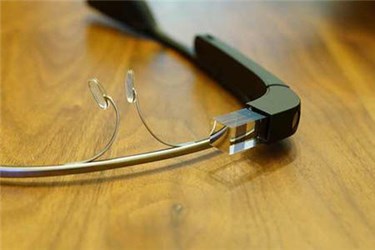Ambulance Service Puts Google Glass Into Play

By Christine Kern, contributing writer

MedEx becomes first U.S. ambulance service to employ Google Glass for telemedicine.
Chicago-based Medical Express Ambulance Service (MEDEX) has become the first U.S. ambulance service to use Google Glass to connect paramedics in the field with doctors through telemedicine technology. The Google Glass initiative with Advocate Illinois Masonic Medical Center in Chicago was launched on February 1, but MedEx has plans to expand the program to other hospitals in the future, according to a press release.
Currently, MedEx is the only ambulance service approved by the Illinois Department of Public Health (IDPH) to use Google Glass in the state. MedEx has two technologically-advanced Google Glass devices using software that allows paramedics to transmit live audio and video to the hospital. All communications operate on an encrypted video platform and comply with HIPAA regulations pertaining to data security and patient privacy.
“When you turn that camera on, it enables much better care of the patient. The visual answers so many questions instantly, as opposed to hearing somebody describing the patient,” Dr. Eddie Markul, medical director of emergency medical services at Advocate Illinois Masonic Medical Center, told Crain’s Chicago Business Journal.
“At MedEx, we work hard to stay ahead of the curve when it comes to equipping our ambulances with the latest innovations,” MedEx CEO Lauren Rubinson-Morris told ChicagoInno. “Google Glass is particularly helpful in medical situations involving health risks that require visual assessment for treatment, such as trauma, burns, cardiac arrest, strokes and seizures.”
“This is exciting technology, but there are major HIPAA issues,” Dr. Patricia Lee, chair of emergency medicine at Chicago-based Illinois Masonic, told Crains. “MedEx went about this in a very thoughtful and respectful way.”
MedEx spent $250,000 to develop the service, but it is not passing those expenses along to hospitals or patients. Rubinson-Morris is banking on expanding business with “hospitals that are looking at telemedicine and the future and want to be part of the cutting edge of things,” according to Crains.
“We’re known for customizing our services, and training and educating MedEx and hospital staff, to meet the specific needs of our hospital partners, and we’re approaching our rollout of Google Glass with this same commitment to excellence,” said Rubinson-Morris in the press release. “You’ll never find a cookie-cutter approach with MedEx. We always look for ways to help our partner hospitals to operate more safely and efficiently.”
The debut of MedEx's Google Glass test comes just weeks after Google halted its Google Glass Explorer beta test, through which the devices were sold for $1,500 apiece. Glass isn't dead, however; Google says it is shifting the unit out of its research division and units will continue to be available for industry use.
